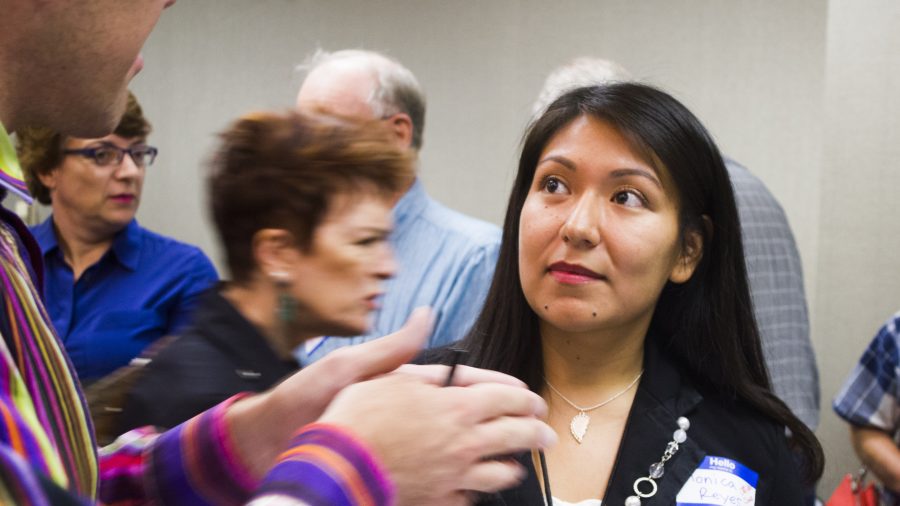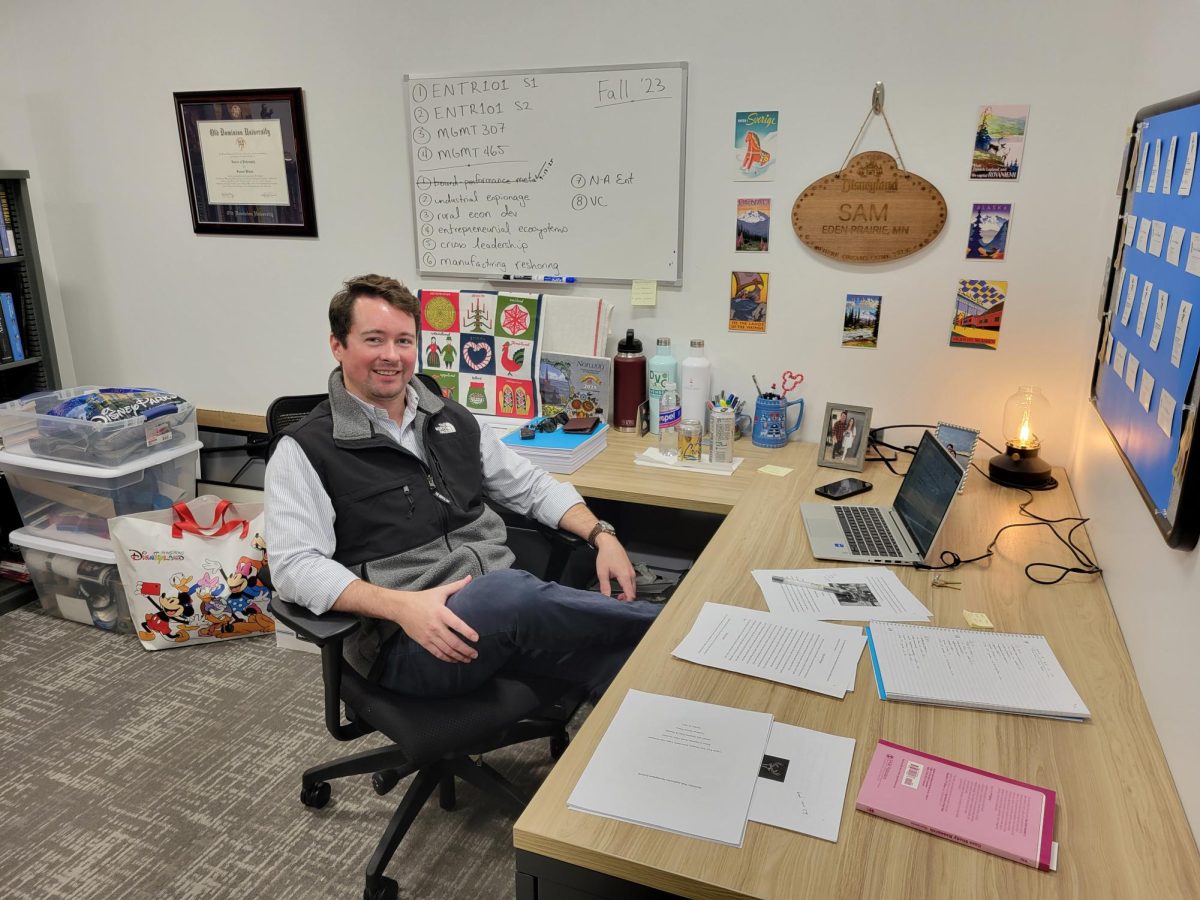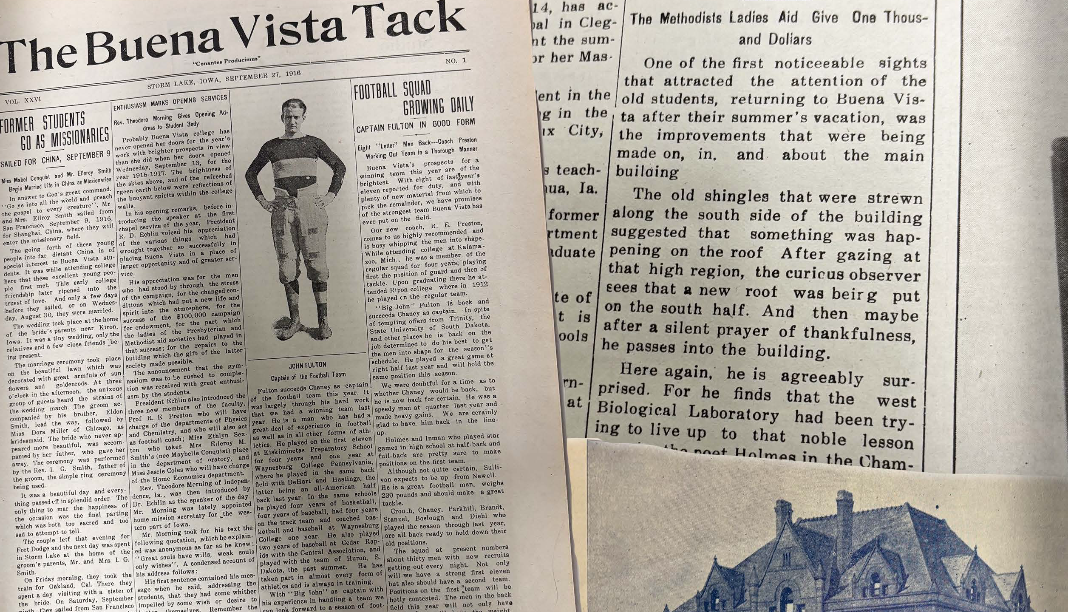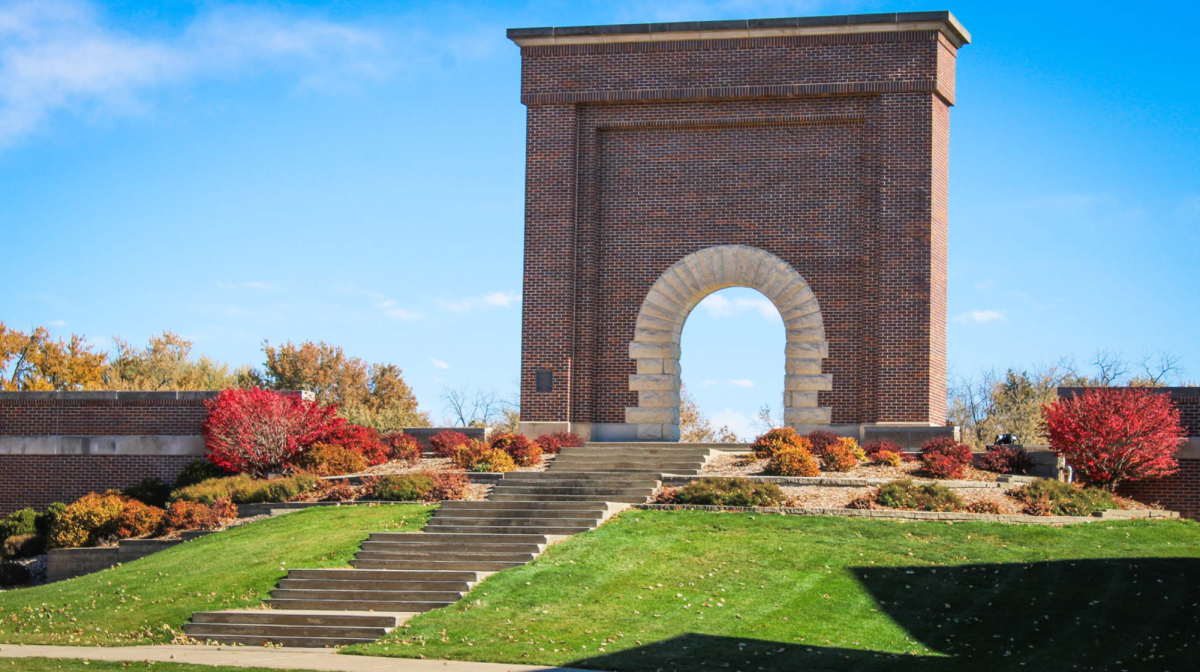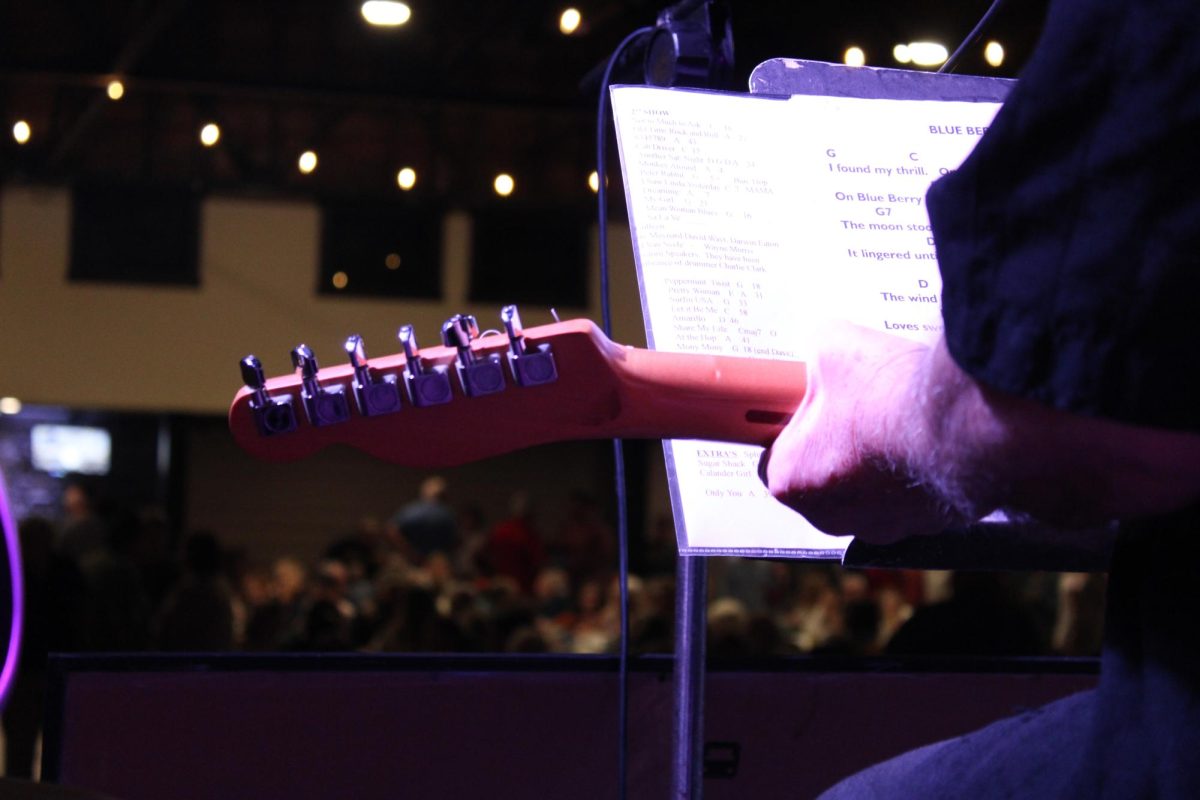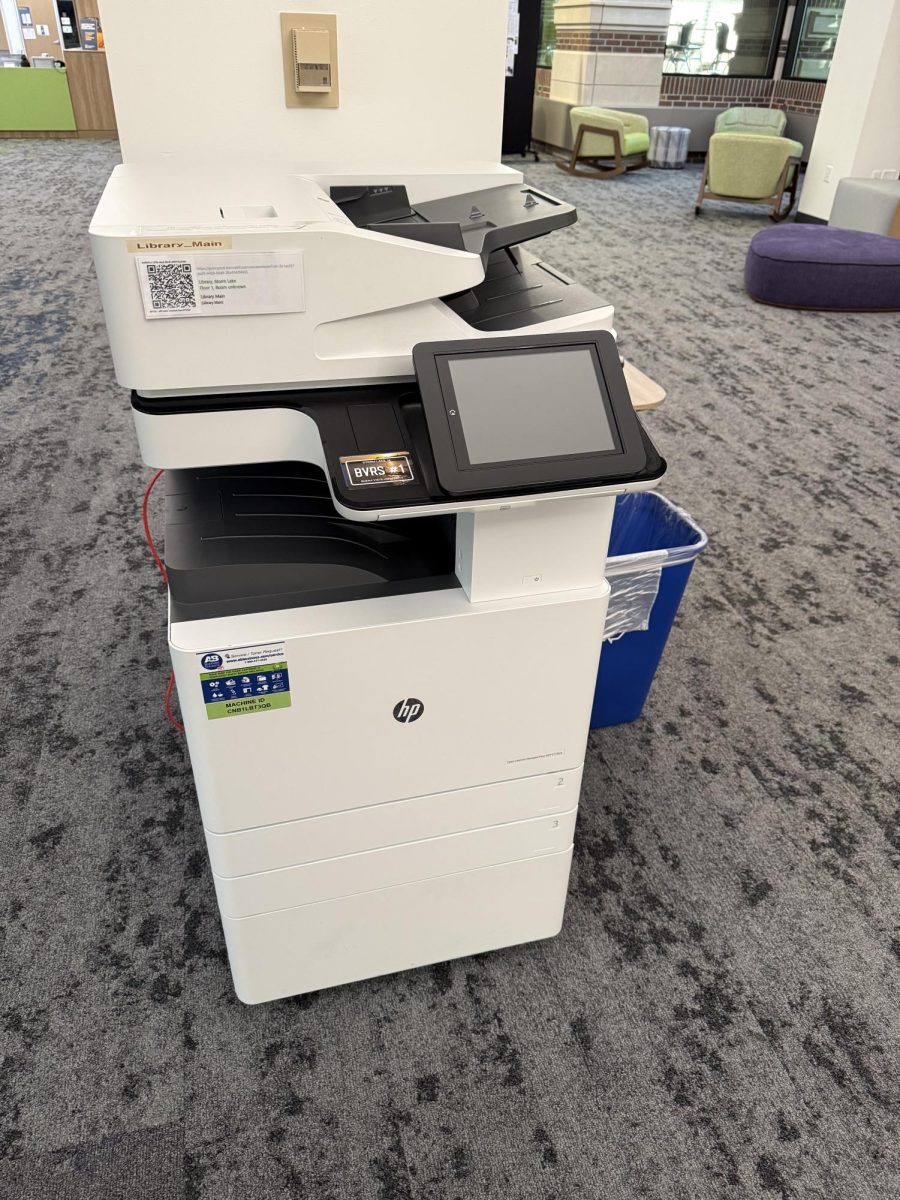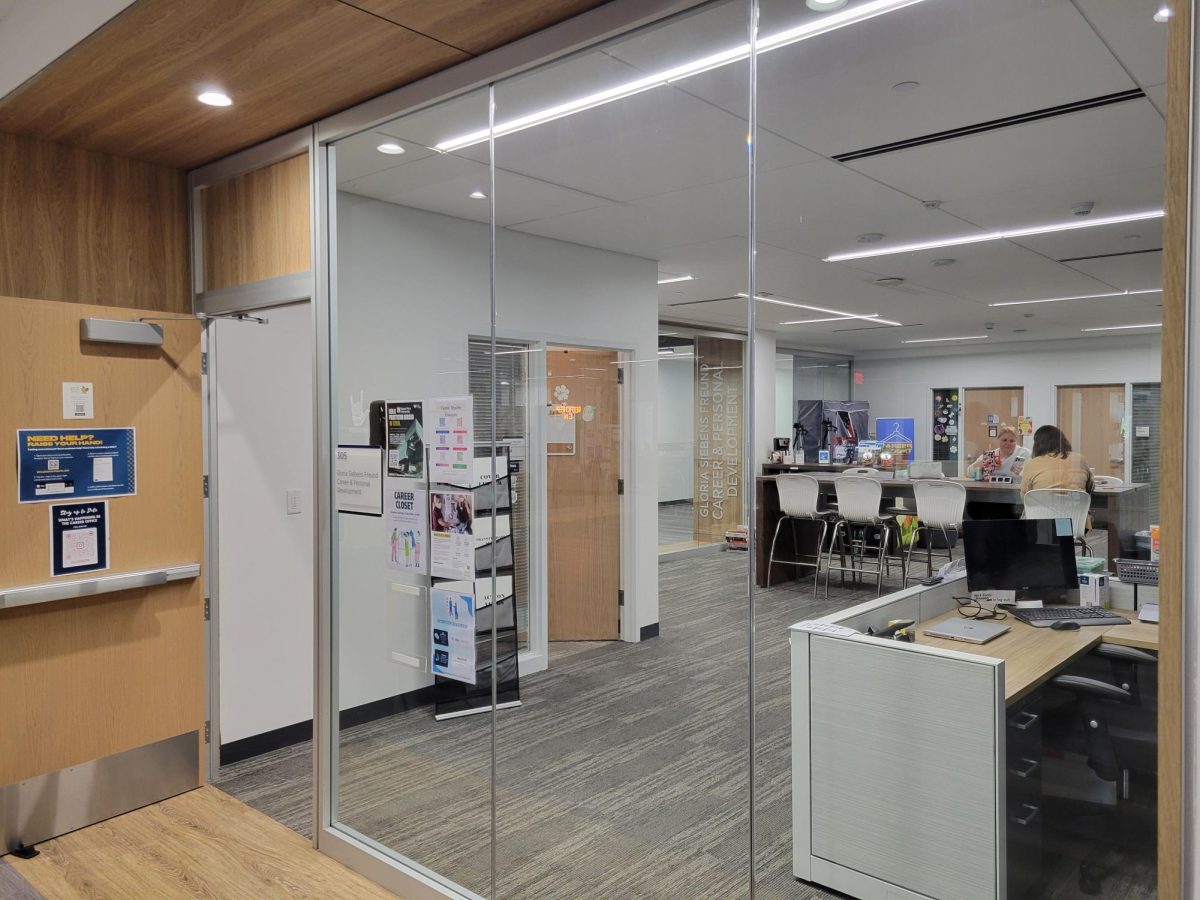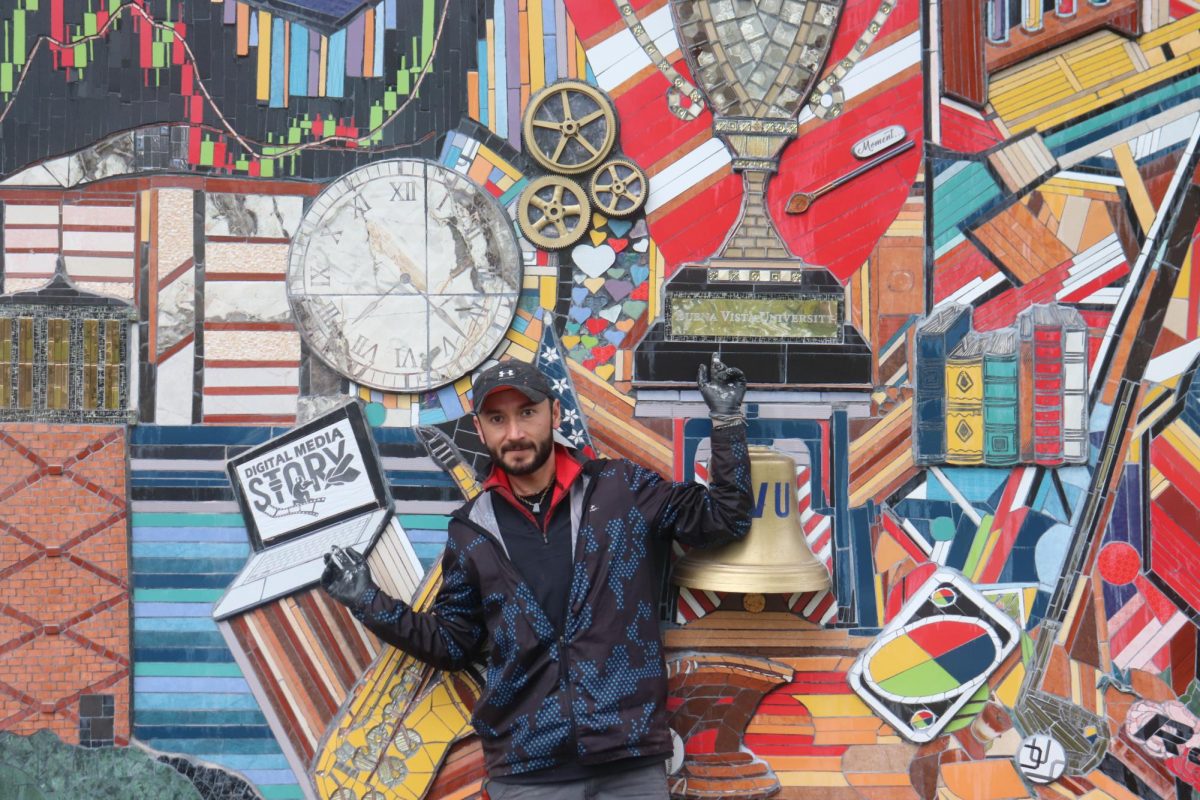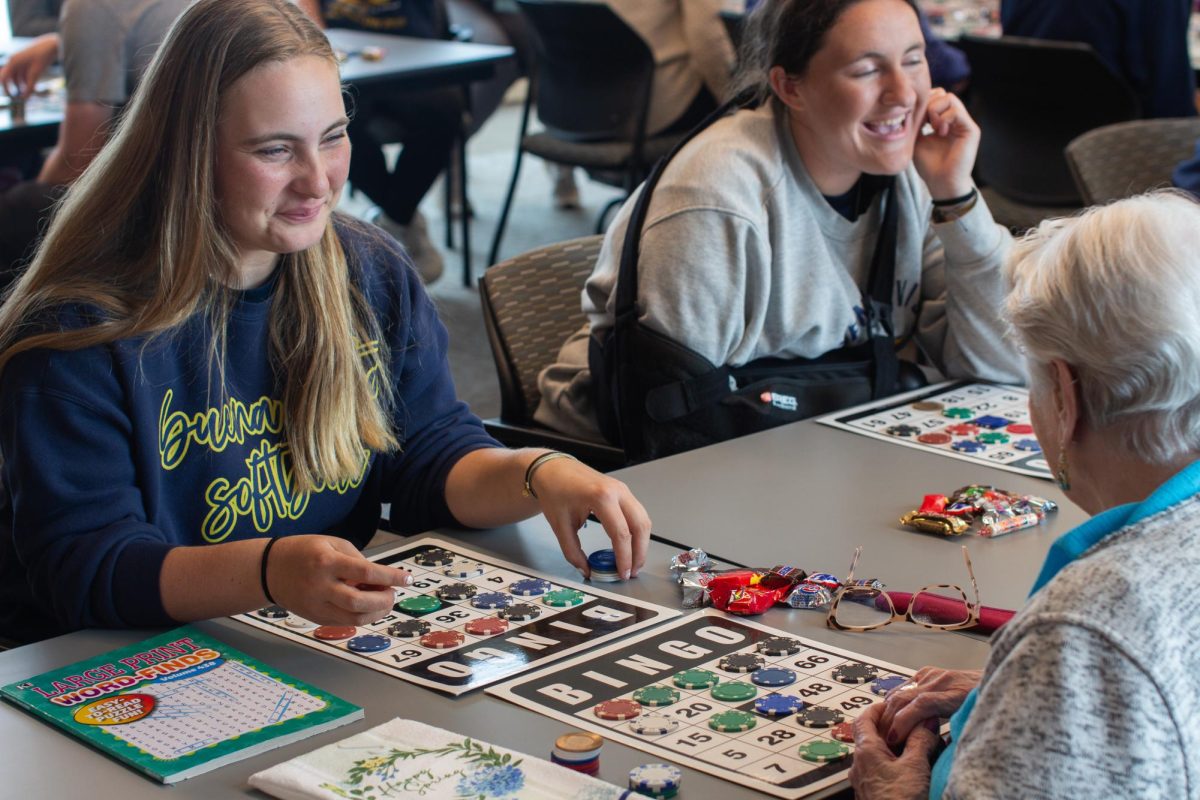Stephanie Steiner + Kiley Wellendorf | Co-Editors-in-Chief
When Monica Reyes arrived in her new Iowa home from Mexico at the age of three, she became one of millions of undocumented immigrants in the United States. But growing up in New Hampton, Iowa, a rural town of around 3,000 community members, she always felt accepted in her community. Reyes is now covered by the Deferred Action for Childhood Arrivals (DACA), a policy created in 2012 allowing certain undocumented people protection from deportation if they came to the United States as children. Recipients of DACA are often referred to as “DREAMers.”
Reyes served as the youngest member of a citizen panel at Buena Vista University at the #UniteIowa Forum on Immigration, Saturday, August 29. The goal of the panel was to offer varying political and social perspectives on the issue of immigration, but also to engage in a civil conversation, a characteristic sorely lacking on the national political scene, according to forum organizer, Des Moines Register columnist, Kyle Munson.
It was Reyes’s DREAMer status and activism on immigration that made her addition to the conversation a natural choice.
“We felt as ‘Iowan’ as any other kid,” Reyes said. With childhood memories including the Iowa State Fair and the traditional rivalry of ‘Hawkeyes vs. Cyclones,’ Reyes spent her whole life living in Iowa.
But as she grew older, her sense of security in New Hampton began to shift as she and others in the immigrant community began witnessing what they perceived to be police discrimination. Upset by this, Reyes partnered with her then seventeen-year-old sister, Nilvia, to raise awareness against immigration stereotypes.
Reaching out to immigrants in the community, the duo compiled testimonies from citizens and began to communicate with groups including the American Civil Liberties Union (ACLU), as well as the National Association for the Advancement of Colored People (NAACP). Later, the two would make their way to Des Moines, Iowa, meeting with representatives from ACLU to discuss the issues facing New Hampton, problems so many other communities across Iowa were grappling with. The duo were pleased with their outreach efforts, which only enhanced their passion for outreach and advocacy.
For some, however, the act of reaching out isn’t so simple. This was the driving force behind the Reyes’ formation of DREAM Iowa. DREAM Iowa is an organization advocating for the rights of undocumented youth and supporting comprehensive immigration reform, with one ultimate goal in mind: “Putting a face on the issue of immigration – not about politics, not about numbers – but putting a face on immigration,” Reyes said.
The Reyes sisters are not the only ones who have experienced the emotional effects of being labeled as immigrants. Susan Cruz and Gabriela Davila, Iowa State University students, have both watched loved ones struggle to get the same opportunities that they’ve received in higher education.
“Seeing others so brilliant, so bright, and so close to you limit themselves is exhausting, which is why I take my education with a lot of dedication and passion,” Cruz said, referencing her sister, a DREAMer who struggled to get accepted into anything more than a two-year college.
DACA has changed their perspectives on life as they reflect on a time when they were younger and afraid to say anything, for fear that their parents would be deported. Part of DREAM Iowa’s mission is to help combat these fears and limitations that some immigrants encounter. While the youth have received some reprieve in the form of DACA, that is only a small victory in the fight they will continue to battle in order to gain that same relief for their parents, other family members, and communities.
“We don’t want to settle for DACA; we want to keep fighting. Fighting for our parents, fighting for our families, fighting for the future of America. It gives us more strength to keep being that voice to the undocumented and to the voiceless,” Davila said.
Because of Reyes’ dedicated work on this topic in recent years, it was important for Munson to allow Reyes’s voice to come through in a conversation in which she isn’t always able to take part. “Rural America might not be a border city or a border state, but it has a lot to say in this conversation,” Munson said.
Every DREAMer has a story. Still, so many words have yet to be said, and the fight remains.
“I can contribute so much to this country and I want to help it and make it better,” Reyes said. “We want to recognize people and bring them out of the shadows.”
Photo by Justice Gage



